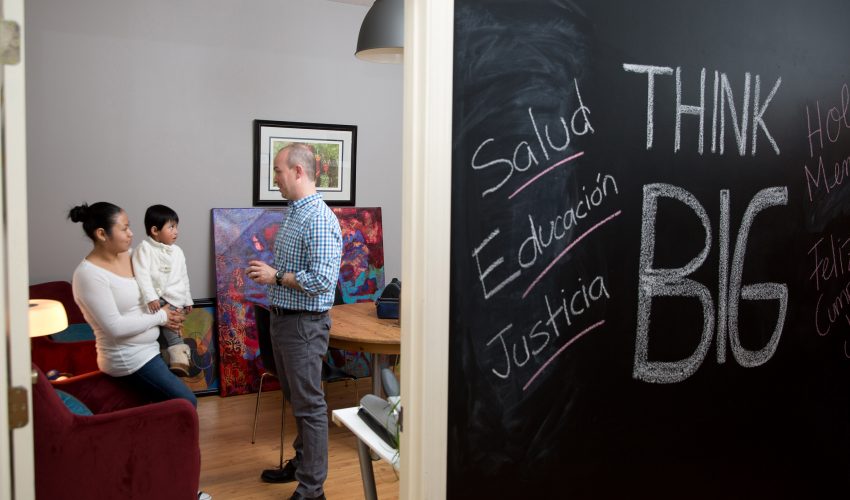For the average person, the language of health care — deductibles, premiums, reimbursements — can be confusing.
Now imagine trying to make sense of that while literally speaking a different language.
That was the reality for 25-year-old Martina Ambrosio when she found out she was pregnant.
She’d wanted to find health care coverage for a while but hadn’t been able to navigate the system on her own.

A friend recommended Latino Memphis, a nonprofit that helps the Latino community with everything from education to health care. Ambrosio reached out.
“I personally tried to apply for health insurance many times, but I couldn’t do it,” she says, speaking through a translator.
“I tried to fax the paperwork myself but was then told the process to apply had changed. I needed someone to help me get insurance, and Latino Memphis gave me that.
“Thanks to them, I got the insurance I needed, and I — and my baby — will be healthier because of it.”
Clearing a path
Ambrosio’s story is familiar to many of the nearly 300,000 Latinos living in Tennessee.
They know the services they need exist, but cultural barriers make it challenging for them to gain access on their own.
“A lot of times we are the connector between those wanting to serve the Hispanic community and those in the community,” says Mauricio Calvo, executive director of Latino Memphis.
“Whether it’s signing up for TennCare, resolving issues with a landlord, or answering questions about the school system, we act as a bridge.”

In Memphis, that bridge is highly trafficked — Latino Memphis officially recorded 4,500 clients served last year, and the actual number is probably closer to 6,000 because of health fairs and other events.
That means they reached at least 14 percent of the more than 42,000 Latinos living in the Memphis area, a substantial segment considering how much of their process is necessarily organic.
“In the immigrant community, trust is so important — maybe more so than in other cultures — so most people find out about us through word of mouth,” Calvo says.
“We help one person, that person tells a friend, and someone new shows up at our door.”
That kind of domino effect also exists in the way individuals use Latino Memphis’ services over time.
“Someone comes for one thing — say, to find a doctor — and they start opening up. A week later they come back to ask about ESL (English as a second language). Eventually you can start having proactive discussions, such as: ‘Have you thought about your immigration status? Are you thinking about sending your kids to college?’
“When we first started, we were putting fires out. Now we can look further ahead.”

Breaking the cycle
Education is a key part of the plan, from ESL classes to continuing adult education to a mentorship program for high school students aimed at increasing post-secondary admissions.
Latino Memphis takes a long view for good reason: Studies consistently show that higher education leads to higher earning potential, which, in turn, leads to better health and less poverty.
And poverty is a huge issue in Memphis:
29.8 percent of people in the city live below the poverty line, and in the Latino community, that number jumps to 45.5 percent.
“We want to create a vibrant city, and a vibrant middle-class Hispanic community is part of that,” Calvo says.
“Today, our community is poor, and that’s not right. Latinos are often rightly described as a very hardworking community with strong values, so how do we change that?”
The answer: Help people get the health care and education they need.
If parents aren’t healthy, they can’t work or make sure their kids are going to school, Calvo says.
Give people the tools to help themselves and they will. And they’ll probably tell a neighbor how to do the same.
“We have the same needs as everyone else: a well-paying job, access to health care, good housing,” he says.
“Because of organizations like Latino Memphis and support from people like BlueCross BlueShield, we’re helping people succeed, and that helps the community succeed.”

The post We Gather Together appeared first on Better Tennessee.

